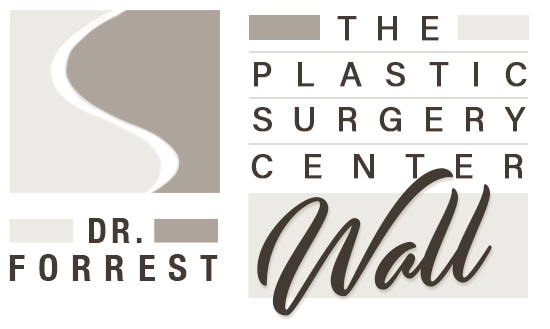If you have disproportionately large breasts that cause chronic neck or back pain or other physical symptoms, you may be considering breast reduction surgery or reduction mammoplasty and wondering, “Does insurance cover breast reduction?
The medical term for what is commonly known as breast reduction surgery is “reduction mammoplasty.” Reduction mammoplasty is commonly recommended as a treatment for macromastia (large breasts) and removes excess fat, tissue, and skin from the breast area.
Most women who get a breast reduction are typically extremely satisfied with their results. Men with gynecomastia (or abnormally enlarged breasts) may also choose to undergo breast reduction surgery.
Patients often want to know if their plastic surgery will be covered by insurance. While the answer is typically, “no,” sometimes patients can get breast reduction surgery covered by health insurance.
Why Get a Breast Reduction?

Though some may not believe it, there are plenty of downsides to having large breasts. The symptoms of macromastia can include pain in the neck, shoulder, and back caused by extra stress placed on the musculoskeletal system by the larger breasts. Some less common symptoms include breast pain and dermatitis or rashes beneath the breasts due to the constant friction of the skin.
There are also psychological downsides to macromastia, like Poor self-image related to large breasts, restricted activity, and difficulty finding or fitting into bras or clothing.
You can get breast reduction surgery at any age, even as a teenager. But if you have breast reduction surgery before your breasts are fully developed, you may require a second surgery sometime later in life.
For these reasons, many patients who suffer from these symptoms believe breast reduction surgery is always medically necessary and will automatically be covered by insurance.
Breast Reductions That Look Good
However, due to the nature of breast reduction surgery, patients obviously still expect their results to be aesthetically pleasing. For this reason, Dr. Wall will, in turn, spend more time on cosmetic concerns than he might on a more purely reconstructive surgery.
This sometimes creates a gray area between reconstructive and cosmetic surgery, a gray area that breast reductions sit squarely in the middle of. Breast reductions are not purely cosmetic due to the fact that symptomatic macromastia can prove to be incredibly painful, but nor can they ever be purely reconstructive. They shouldn’t be in the hands of a board-certified plastic surgeon, anyway.
Breast Reduction Procedure in Shreveport
To understand this, it is beneficial to know exactly what a plastic surgeon does or will require you to do before, during, and after a breast reduction surgery:
Before the Breast Reduction Surgery
Dr. Wall will typically ask a combination of all of the following before your breast reduction surgery in Shreveport:
- Complete various lab tests
- Get a baseline mammogram
- Stop smoking for a certain period of time before and after the surgery
- Avoid taking aspirin or any other drugs that list blood thinning as a side effect
You and Dr. Wall will sit down for a consultation. During this time, you will talk about your medical history and why you are seeking breast reduction. Be prepared to also discuss any physical conditions or complications stemming directly from your breasts.
Dr. Wall will measure your breasts and talk with you about how much breast tissue will need to be removed in order to achieve your goal. During this consultation, you will also learn how to prepare for your surgery and how to plan for your recovery after your breast reduction surgery.
How to Prepare for Breast Reduction Surgery
The better shape you’re in prior to surgery, the easier it will be for you to heal properly. You’ll want to follow Dr. Wall’s instructions to ensure the best results.
Before you undergo your breast reduction surgery, you will need to get your home or “recovery area” ready. We suggest having the following on hand:
- Ice
- Clean washcloths and towels
- Gauze
- Loose, comfortable clothing
- Any other ointments or creams recommended by Dr. Wall during your consultation
You will also need to appoint a friend or family member to drive you home and accompany you for at least the first night after your surgery.
During Breast Reduction Surgery
Depending on your personal situation, breast reduction surgery can be done outpatient. You will more than likely get anesthesia, which means, in short, that you will be put to “sleep” during your procedure.
The entire process should take from 2 to 5 hours, sometimes longer. Dr. Wall will make a cut (or incision) around the aerolia (nipple) and then down on the breast to make a keyhole. He will then remove the excess breast tissue, fat, and skin via liposuction to reduce the size of each breast. After this, he will reshape the breast and reposition the nipple and areola.
Dr. Wall will typically use drainage tubes and then stitch up your breasts. He wraps each patient in a special gauze. You will more than likely be instructed to wear a special surgical bra.
Breast Reduction Post-Op
Immediately after your breast reduction surgery, your breasts will be heavily bandaged, drainage tubes may need to be placed there to drain any excess fluids, and you will also likely need to take medication for pain and antibiotics to decrease the risk of infection.
You will need to take at least one week off from work or school. Some will need two weeks, depending on the severity of the situation. Dr. Wall will instruct you on when to schedule your follow-up appointment for removing your bandages and stitches.
For the next several days following your breast reduction surgery
- There could be swelling, bruising, or tenderness in the breast area
- Your surgeon may recommend a compression bra to help protect the healing breast tissue
Is a Breast Reduction Cosmetic Surgery?
The nipple and areola typically remain attached to the breast but sometimes need to be removed and reattached at a different point. It is this part of the procedure that blurs the line between reconstructive and cosmetic surgery.
Though the procedure might alleviate neck and back pain immediately, it can take some months before the swelling and scarring fade completely. This procedure is, obviously, not simple. This is why insurance can sometimes be reluctant to cover your breast reduction costs.
Breast Reduction Surgery Risks
There are also risks associated with breast reduction surgery, and any form of risk is the arch-nemesis of insurance. If your insurance gives you the ability to have breast reduction surgery, and there are complications, your insurance could be footing your medical bills for quite some time.
Some of the risks associated with breast reduction surgeries are:
- Bruising, which is generally temporary
- Scarring in the breast area
- Removal or a loss of sensation in the nipple or the area around the nipple
- Difficulty or inability to breastfeed. For this reason, breast reductions are not recommended for women who intend to have children in the future
- Differences in size, shape, or symmetry of the breasts. Should this occur, you may require further cosmetic surgery in order to rectify the difference
These are all factors your insurance company will look at when deciding if they intend to cover your breast reduction cost.
To be on the safe side, you’ll want to contact Dr. Wall immediately if you have any signs of infection, fever, unusual discharge from the incision site, or if any of the stitches come out before they are due to be removed.
How to Get a Breast Reduction Covered by Insurance

Companies will generally require 2-3 documented reports from specialists before they will consider covering the procedure. Insurance companies may also require 6 months to a year of documented therapy from a chiropractor or physical therapist before they will cover the procedure.
Breast Reduction Covered by Insurance With Physician Referral
Even if you are referred to a plastic surgeon by another physician, that does not always mean your insurance company will cover your breast reduction costs.
If you suffer from chronic health issues related to macromastia and believe you require reduction mammoplasty, your best course of action is to stay up to date on your insurance’s specific requirements for covering breast reduction surgery costs because their policy today may not be their policy in a few months or a year. Have your insurance company forward their criteria to you in writing for your records. You should expect there to be 3-6 months of preparation to qualify to have your breast reduction surgery costs covered.
Shreveport Breast Reduction Covered by Insurance
If you have questions about breast reductions or any other reproductive or cosmetic plastic surgery, schedule a consultation with Dr. Forrest Wall at the Plastic Surgery Center. You can also give us a call at our Shreveport location at 318-221-1629, and our Monroe location can be reached at 318-812-0182.

